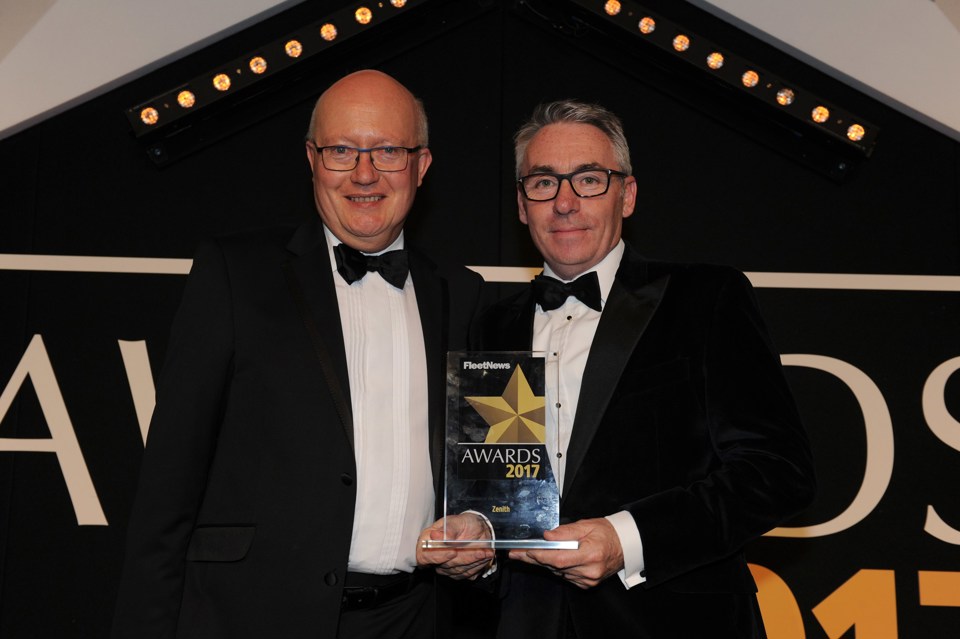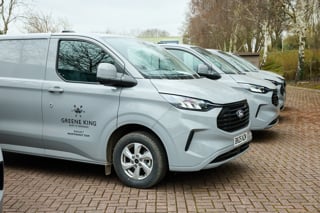Zenith’s chief executive explains how changing hands five times in a decade has helped to spur company progress, and reveals why every transaction has been transformational.
In January, Zenith announced a new majority shareholder, private equity firm Bridgepoint. It was the fifth time the leasing company had changed hands in the past decade, part of a growth strategy which involves a never-ending search for fresh injection of funds and management knowledge.
The strategy has taken the company beyond simply funding assets. Like some of its peers, Zenith now prefers to think of itself as a business service and mobility provider. So what does that mean for customers?
Chief executive officer Tim Buchan explains: “It’s simply how much money do you want to pay and how much commitment do you want to give. Is it one day or seven years? That’s it in automotive terms: for less than £30 you can have a one-day hire that I will deliver within two hours. But for less money you can commit to a longer lease.
“We are only missing the one-hour choice but we are not seeing any demand from the corporate market for that.”
He adds: “I’m not buying into the autonomous car at the moment – it’s too far away to understand what it means. Even if it does change the landscape, organisations will still require companies like us to fund and manage them anyway. It’s just another business services asset, and only one-third of what we do today is about managing assets, the rest is managing individuals.”
Fleet News: You seem to be constantly on the lookout for new shareholders – why is this important to the company?
Tim Buchan (TB): Zenith sees new investors as a way to secure investment for long-term growth and development. Every transaction has had something that is transformational within the business. For example, Equistone took us into the salary sacrifice market in 2008; Morgan Stanley in 2010 helped to grow salary sacrifice and all of our products and services. It also helped us to invest in securitisation, which means we have broader, unlimited funding for vehicle assets, from trucks to cars. HG’s focus was consolidation – Leasedrive and Zenith – and IT investment. We need digital because as we open up to consumers , they want choices, to do everything online, and we want to track transactions. We wanted an IT solution to grow our business without any constraints on volume.
So what are you looking for now, with this latest investment by Bridgepoint?
TB: The next stage is to look at what else a business service provider needs going forward, what our customers need and the trading environment.
Through 2016, it became more apparent that with Brexit there would be more investment in infrastructure, growth in light commercial vehicles (LCVs) and company car salary sacrifice would continue as a core market.
So there was a need to be a one-stop shop where we can provide a truck for seven years to a one-day rental on a car. We are out there now talking to customers .
The first announcement, which came soon after the investment, was the acquisition of truck funder CVL. How does this fit into your strategy?
TB: We think over time there will have to be more regulation on heavy LCVs, such as an O-licence requirement at that weight. We invested in CVL so we could build a proposition for large service companies from end-to-end with our reporting platform – trucks, cranes, forklift trucks, vans, cars and salary sacrifice. We have chosen to focus on large corporates and sole supply with fleets with more than 100 assets or employee bases of more than 1,000 eligible individuals where we can have more in-depth relationships.
But we will also continue to evolve our white-label business in the SME sector so those brands can supply funding to their own customers. That area is growing significantly because manufacturers are thinking differently about risk on their own balance sheets.
Now we have the ability to run multiple asset types on one platform with multiple funding options – trucks, vans, cars, salary sacrifice, funding, accident management, fleet management, rental. We can provide scale across the whole fleet community.
Where do you see future growing coming from and how much of an impact will Brexit have on your plans?
TB: We expect to see a deferral of demand over the next two or three years. Brexit will breed caution and that affects hires which affects the number of cars people operate. But no one really knows. All the markets have organic growth opportunities; company cars will grow, dependent on the market, salary sacrifice has seen a significant resurgence – it’s become less about savings and more about employee benefits. Vans are growing fast because of the home delivery and courier markets and trucks have a huge growth opportunity because leasing and outsourcing is relatively immature. There are also opportunities in adjacent markets such as retail, but with an FCA review coming and the diesel debate, we want to see what happens before we do anything.
Our ownership structure enables us to be more agile and also allows us to make acquisitions rather than build ourselves. This has been a real benefit, especially in trucks where there is complex regulation and we need scale quickly.
So salary sacrifice is very much alive and kicking?
TB: There was misinformation about what happened and there are still a lot of prospects who think it’s all over – that’s where our consultancy team comes in. Our industry has not done a good job of communicating, but we are seeing a strong pipeline of companies without a scheme and they are seeing it as added benefits for staff, not about tax savings. We anticipate growth at the same level as we expected previously, especially in the private sector. The market is around 70,000; by 2019/20 we expect it to be 125,000 vehicles and there is exponential growth above that as well depending on the market.
Are there cross-sell opportunities and learnings from your new truck business?
TB: Yes, the benefits work both ways, especially for LCV operators now that we have a turnkey solution on downtime management. The cross-sell opportunity is significant with existing customers and CVL’s customers and there are lots of organisations in the UK that are running different assets. There are many synergies and we will train our staff across the whole proposition.
Zenith remains a UK-focused business although it works with partners, including Sixt Leasing and Business Lease, in 11 countries across mainland Europe to cater for customers with pan-European reach.
“We have secured a significant European fleet because of this flexibility and our ability to offer best in class in each market,” Buchan says. “That approach works best for us in the Brexit environment – certainly for the next three-to-five years we are a UK solution.”
The company moves into new premises in Leeds in October which it says will create a “village environment” with more car share and electric vehicle solutions for a low emission community. Coinciding with this are plans to launch a new share scheme for employees, enabling them to have ownership of part of the business.
Buchan says: “That will drive a different approach to the business."





















Login to comment
Comments
No comments have been made yet.